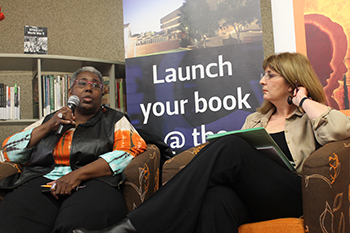Latest News Archive
Please select Category, Year, and then Month to display items
16 October 2025
|
Story Lacea Loader

The University of the Free State (UFS) has obtained an interim court order prohibiting any individuals from engaging in unlawful activities or conduct on any of its campuses.
In terms of the order, no person may amongst others:
- Participate in or promote unlawful protest action;
- Disrupt or interfere with academic or online activities;
- Block access to or from university campuses;
- Intimidate, threaten, or harass students, staff, or visitors; or
- Damage, destroy, or tamper with university property or safety equipment.
The order applies to all UFS campuses — Bloemfontein, South, and Qwaqwa — and remains in force pending the final determination of the matter.
The University urges all members of the community to respect the order and uphold a safe, conducive environment for teaching, learning, and work.
Africa’s lost voice during the Second World War echoes throughout book
2016-08-24

Prof Judith Byfield and Prof Heidi Hudson at the
book launch of Africa and Second World War at the
UFS Sasol Library.
Photo: Rulanzen Martin
If you pick up any historical record on the Second World War, you would see that, to a large extent, Africa has been missing from the history pages until now.
Africa and the Second World War (WW II) is a book edited by Prof Carolyn Brown from Rutgers University and Prof Judith Byfield from Cornell University in the United States. The book is the outcome of various papers presented during a workshop at Rutgers University and at a conference on WWII hosted at Cornell University.
The co-editors of the book were invited by Prof Jonathan Jansen, Vice-Chancellor and Rector of the University of the Free State (UFS), to launch the book at the UFS. The Centre for Africa Studies at the university, in collaboration with the UFS Sasol Library, presented the launch on Tuesday 16 August 2016.
Bestowing honour upon Africa’s role during WW II
Many people do not know that WW II started in Ethiopia with the Italian Invasion. This is generally omitted from discussions or complete histories of WW II. The present book explores the experiences of male and female combatants, peasant producers, women traders, missionaries, and sex workers during the war. “Many people are not aware that Africa produced most of the mineral and agricultural during the war,” said Prof Brown.
Book to reach a greater audience for discussion
The co-editors hope that the book reaches people who teach WW II history, as many talk about only the nationalist movements. “The opening of the book also talks about the importance of South Africa during WW II,” said Prof Byfield. The authors hope that people will read the book to start thinking comparatively about the war.